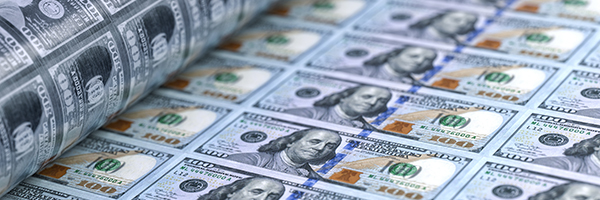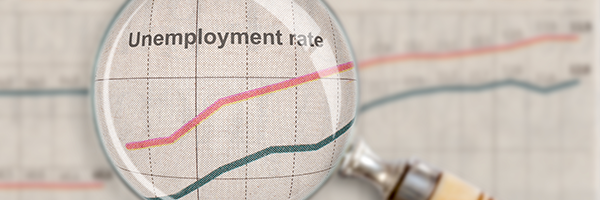
Fed mission almost accomplished as PCE inflation dips to 2.1% rate
The Federal Reserve’s preferred measure of U.S. inflation, the Personal Consumption Expenditures (PCE) price index, fell to a 2.1% annual rate in September.

The Federal Reserve’s preferred measure of U.S. inflation, the Personal Consumption Expenditures (PCE) price index, fell to a 2.1% annual rate in September.

Right now the Magnificent 7 stocks that have provided so much of the leadership in this huge rally look like they will show slowing earnings growth when they–Amazon, Apple, Alphabet, Meta Platforms, and Microsoft are up this week–report in the next few days.

Two-year Treasury yields have climbed 34 basis points since the Federal Reserve reduced interest rates on September 18 for the first time since 2020. Rising yields “reflect the reduced probability of recession risks,” Steven Zeng, an interest rate strategist at Deutsche Bank told Bloomberg. “Data has come in pretty strong. The Fed may slow the pace of rate cuts.” We’ve read this story before

Total assets under management in U.S. money-market funds rose by $38.7 billion in the week week ended October 2, according to the latest Investment Company Institute data released on Thursday. The increase puts total assets at a record $6.46 trillion, and caps the biggest quarter of inflows since the March 2023 banking crisis. The old record was set when the collapse of Silicon Valley Bank and other lenders sent a flood of cash into money-market funds as the Federal Reserve raised rates. What’s odd now is that the Federal Reserve is cutting interest rates and the financial system doesn’t seem particularly stressed.

What’s amazing to me right now is how complacent Wall Street is about the prospects for a wider regional war in the Middle East. Which could include an attack by Israel on Iran’s nuclear facilities.On a day when Israel vowed to retaliate against a barrage from Iran that rained down missiles on Israel’s Iron Dome defense, West Texas Intermediate oil rose by just 0.39% to $70.10 a barrel. International benchmark Brent crude was ahead just 1.43% to 74.61.

Goldman Sachs’ consumer bank, Marcus, has reduced the rate on its high-yield savings account following the Federal Reserve’s interest rate cut in more than four years.
Marcus flagship offering now has a 4.25% annual percentage yield, down from 4.4%. I think this is just the canary in a coal mine for yield on income products.

There was a whiff of panic to the big moves by the People’s Bank today.China’s central bank cut a key short-term interest rate and announced plans to reduce the reserve ratio, the amount of money banks must hold in reserve, to the lowest level since at least 2018. This marked the first time reductions to both measures were revealed on the same day since at least 2015. And that wasn’t all.

I understand why no one wants to get off the rally bus. Last week’s gains pushed the Standard & Poor’s 500’s total return for 2024 above 20% again. The index jumped 1.7% on Thursday, putting in its 39th record close of the year. Both stocks and Treasuries are headed for a fifth straight month of gains. But anyone expecting the S&P 500 to build on its year-to-date gain should consider that Wall Street’s own strategists already see the upside exhausted.

I expect investors and traders to be looking to Friday’s PCE inflation report for confirmation of the Federal Reserve’s 50 basis-point interest rate cut and for evidence that the Fed will cut by 50 points again at its November 7 meeting.

It’s not just that stocks soared Thursday, September 19 with the Standard & Poor’s 500 climbing 1.7% to set its 39th record in 2024. It’s what stocks topped the leader board in the advance and what stocks lagged.

The number of Americans filing new applications for unemployment benefits dropped to a four-month low last week. Initial claims for state unemployment benefits dropped 12,000 to a seasonally adjusted 219,000 for the week ended September 14. That’s the lowest level since the middle of May, the Labor Department said on Thursday. Economists polled by Reuters had forecast 230,000 claims for the latest week. And stocks soared.
The Federal Reserve lowered its benchmark interest rate by 50 basis points Wednesday. The vote for a 50 basis point cut was 11-1 with the only negative vote–for a 25 basis point cut rather than 50–the first dissent in the Jerome Powell era. The Fed’s dot plot showed a narrow majority, 10 of 19 Fed officials, favoring at least an additional half-point in rate cuts at Fed’s two remaining 2024 meetings. The Federal Open Market Committee to lower the federal funds rate to a range of 4.75% to 5%, after holding it for more than a year at its highest level in two decades. It was the Fed’s first rate cut in more than four years.